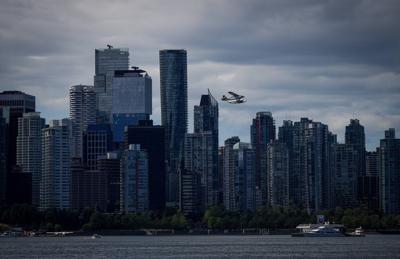VANCOUVER - Vancouver affordable housing advocate Rohana Rezel is six years into a freedom of information dispute with the City of Vancouver and Airbnb over data on short-term rental owners, but he says the issue has evolved beyond housing into a fight for “public transparency.”Â
Rezel filed two requests with the city under the Freedom of Information and the Protection of Privacy Act in 2019, seeking records about Airbnb and other short-term rental operators in Vancouver, including names, addresses and business licence numbers.Â
The city refused and Airbnb opposed the release, leading to years of legal wrangling involving B.C.‘s Office of the Information and Privacy Commissioner, and the province’s Supreme and Appeal Courts.
“I argue that they’re basically running a business and every other business lists their addresses, so why not Airbnb?” Rezel said in an interview.Â
An adjudicator with the privacy office ruled in 2021 that the city wasn’t allowed to “refuse access” to business licence numbers and addresses of short-term rentals, prompting Airbnb and the city to go to court claiming the office was obligated to notify 20,000 short-term rental operators to give them a chance to weigh in on the dispute.Â
Rezel said he believes the city and the company wanted to make his “requests go away” by trying to impose the requirement on the privacy commissioner’s office because it would be nearly impossible and impractical to notify 20,000 owners about the potential release of the information he wants.Â
“Even if (the privacy commissioner) took on the task, it would take years,” he said.Â
An adjudicator’s decision released Wednesday says the commissioner’s office is not required to contact thousands of owners, finding it “would not be a fair, timely or efficient administration” of the act, and both the city and company could have raised the issue “as early as possible but failed to do so.”Â
Airbnb argued in its submissions to the adjudicator that publicly releasing the information would allow people to get a “wealth of additional and possibly sensitive personal information” about short-term rental operators.Â
“Operators receive a unique level of harassment and threats from members of the public compared to any other business licence holders, and public disclosure of their names and home addresses will allow this harassment to continue and potentially escalate into other criminal activity such as vandalism and robbery,” the company claimed.Â
Airbnb said the legislation’s “critical objective” is to protect personal privacy, meaning that owners should be notified about the potential release of the information because their privacy rights are “paramount over protecting the right to access to information.”Â
The City of Vancouver argued that the “administrative burden” placed on the Information and Privacy Commissioner to notify all 20,000 hosts was “outweighed by concern for personal privacy rights of hosts.”
“The primary factor complicating notice is the number of (short-term rental) operators whose information is contained in the subject records,” the city’s submissions to the adjudicator said.Â
The adjudicator ruled that the privacy commissioner doesn’t have to contact owners, but left it open for the city and Airbnb to canvass operators “to obtain any available evidence and information that the city and Airbnb think is relevant or necessary to make their case or support their position.”Â
“The information at issue in the reconsideration is now six to seven years old,” adjudicator Lisa Siew’s decision says. “I conclude the longer a decision about a public body’s decision to refuse access is delayed, the greater the risk that the requested records and their contents may no longer be of value to the applicant or useful in promoting public accountability.”Â
Rezel said Wednesday that the information he’s seeking is likely out of date now, but he plans to continue fighting for the information.
“This battle is not just about housing anymore. It’s about a multinational corporation using an army of lawyers to prevent citizens from accessing information,” he said.
“This is a battle for public transparency, it’s a battle against corporate interests versus a citizen’s right, and I emphasize the right, to public information.”Â
The City of Vancouver and Airbnb did not immediately respond to a request for comment on the adjudicator’s latest ruling.Â
This report by The Canadian Press was first published May 8, 2025.Â



























To join the conversation set a first and last name in your user profile.
Sign in or register for free to join the Conversation